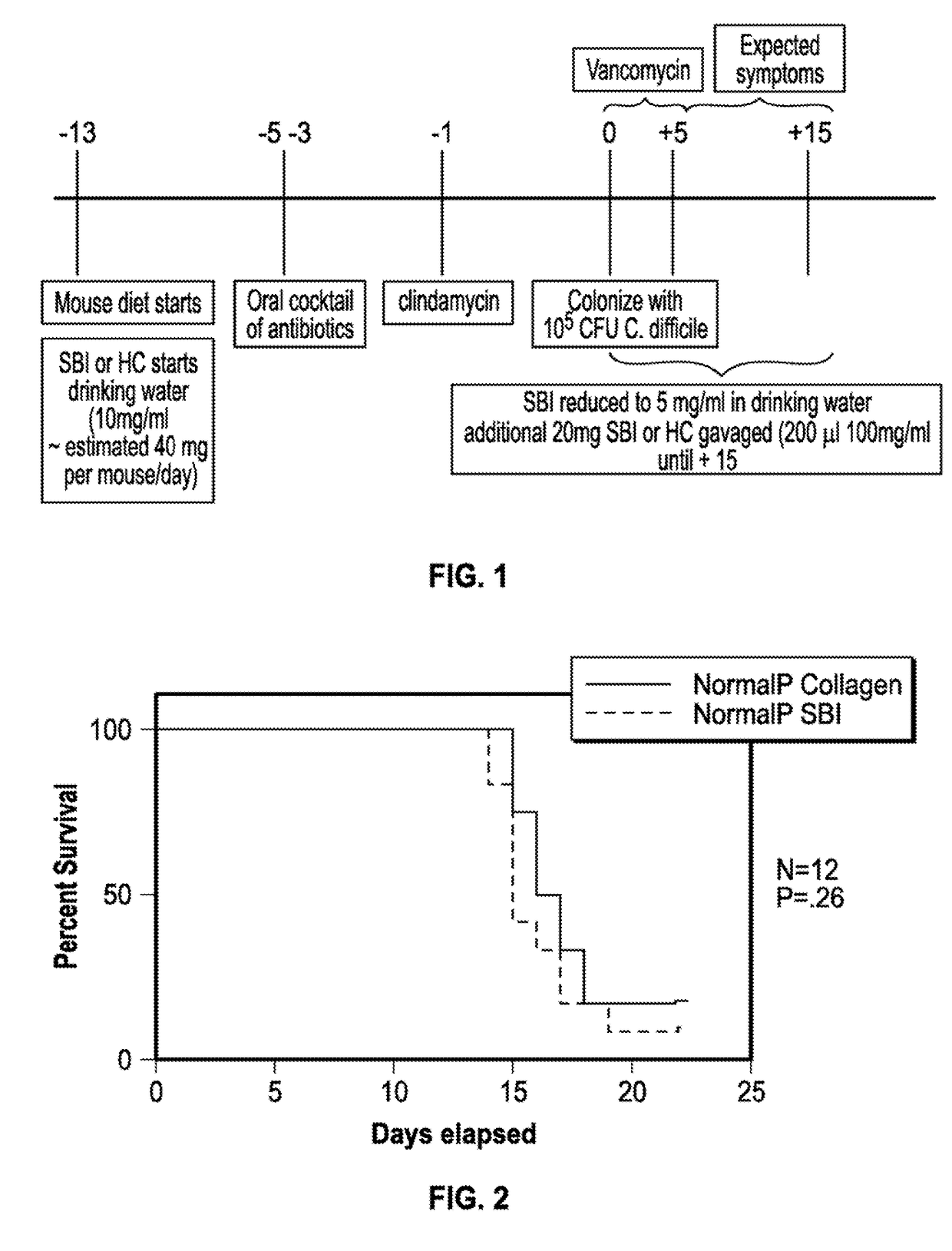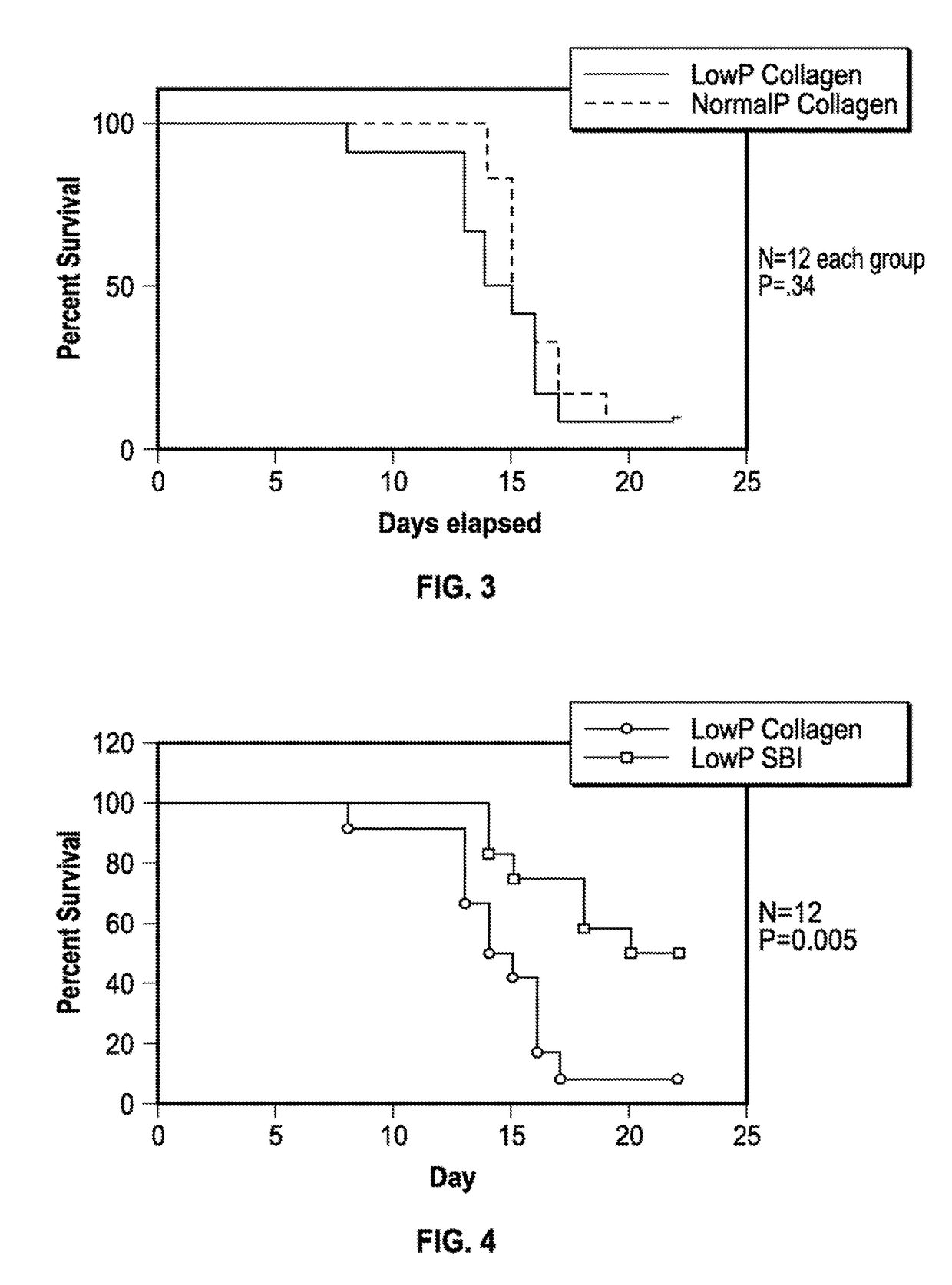Methods and compositions for treating clostridium difficile associated disease
a technology of clostridium difficile and composition, which is applied in the field of methods and compositions for treating clostridium difficile associated disease, can solve the problems of affecting the survival rate of cdad, the rapid spread of severe diarrhea, and the threat to older patients in hospitals and elder care facilities, so as to prevent the reoccurrence of cdad, improve symptoms and survival rate, and reduce protein
- Summary
- Abstract
- Description
- Claims
- Application Information
AI Technical Summary
Benefits of technology
Problems solved by technology
Method used
Image
Examples
example
Effects of Bovine Immunoglobulin Concentrate on Recurrent Clostridium difficile Associated Disease (CDAD) in Mice
[0043]A mouse model to mimic human CDAD was developed by Chen et al. Chen. X, Katchar K, Goldsmith J D, Nanthalcumar N, Cheknis A, Gerding D N, Kelly C P. A mouse model of Clostridium difficile-associated disease. Gastroenterology 2008: 135(6): 1984-92. Briefly mice were administered a cocktail of antibiotics (kanamycin, gentamicin, colistin, metronidazole, and vancomycin followed by clindamycin phosphate two days later) to disrupt the normal flora. Next mice were challenged with C. difficile (VPI10463) at one time and administered vancomycin for five days. Vancomycin is the standard of care for eradicating C. difficile in human patients. Kaplan-Meier survival curves indicated that the 105 colony forming unit (CFU) dose of C. difficile induced 96% mortality by day 4. Evidence of similarities to human CDAD were shown histologically. Mouse tissues displayed features of pseu...
PUM
 Login to View More
Login to View More Abstract
Description
Claims
Application Information
 Login to View More
Login to View More - R&D
- Intellectual Property
- Life Sciences
- Materials
- Tech Scout
- Unparalleled Data Quality
- Higher Quality Content
- 60% Fewer Hallucinations
Browse by: Latest US Patents, China's latest patents, Technical Efficacy Thesaurus, Application Domain, Technology Topic, Popular Technical Reports.
© 2025 PatSnap. All rights reserved.Legal|Privacy policy|Modern Slavery Act Transparency Statement|Sitemap|About US| Contact US: help@patsnap.com


